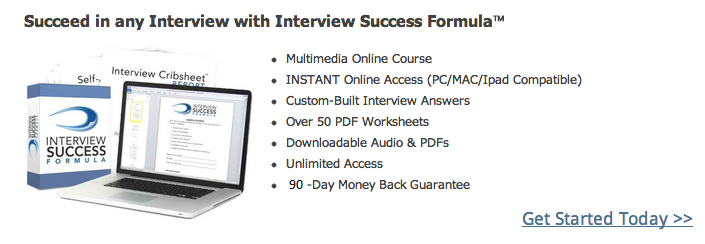 It’s pretty simple to create interview answers that are persuasive. You just have to know the secret. Many people mistakenly believe that being persuasive means convincing other people to agree with your point of view. That’s a myth.
It’s pretty simple to create interview answers that are persuasive. You just have to know the secret. Many people mistakenly believe that being persuasive means convincing other people to agree with your point of view. That’s a myth.
Let’s take a familiar non-job interview answer example. Every parent knows that it’s hard to convince even a two year old to go to bed when he doesn’t want to. Your choices are either to demand the child goes to bed and risk a tantrum or to give him something else he wants, a bedtime story, a hug, permission to have dessert tomorrow, etc.
Persuading an adult works the same way. You have to offer her something she wants or risk indifference or upset.
The tricky part of being persuasive with your interview answers is correctly identifying this want, including that of a job interviewer. What is this person trying to achieve by hiring a new employee?
The interviewer definitely isn’t looking for someone who just has a high IQ score or doesn’t need much sleep (features of a person). This interviewer might want a new hire who can use brain power to solve tough technical problems or someone who can put in long hours and perform well without being too tired (benefits of this person). Rather than looking for a person who just has general abilities, the interviewer is looking for a person to solve a problem or achieve specific goals.
What kind of goals? A retail business is looking for a salesperson who can increase revenue. An elementary school is looking for a teacher to improve reading and math skills. A hospital is looking for a doctor who can make patients healthy quickly, efficiently and happily.
These examples are pretty broad. Your job will include more specific goals , be it upgrading certain types of computer systems or helping a nonprofit implement a certain program. You will need to identify the specific goals for your potential job and organization, to have persuasive job interview answers.
Some of these you will find in the, job description, but some you will need to uncover on your own through research. First, you should collect some background information. You should learn about the size of the organization in terms of revenue / annual budget, people who work there, and the number of customers or clients that the organization serves. You should also learn about the organization’s reputation and what outsiders perceive to be its strengths and if possible its weaknesses.
If you are applying to be part of a specific group, you should do your best to learn about this group. What is their mission, and how are they doing at fulfilling this mission? Why are they looking to hire someone new? Is the group growing or the group’s purpose changing, or did someone leave and you are filling in the gap?
Do your best to collect information about the people who would be part of your team. How do your abilities complement their needs, or in other words, how does bringing you onboard bring something new to the table?
At the end of this research, try to imagine all of the various goals for this group, what they currently do and what they might hope to achieve over the next five or ten years. (This exercise can help you whether you’re an automotive engineer, a marketing directing, or a small animal veterinarian.)
Next, you will need to understand how your skills and abilities can help the organization fulfill these goals. Think about how your skills can be applied to solve these various challenges. If you can, imagine solutions to these challenges that your prospective organization hasn’t considered yet.
Finally, you will need to communicate the match between your abilities and the organization’s goals. When you prepare for your interview, you will think about questions such as, “what’s your biggest strength?” To have a persuasive answer, you will articulate one of your core attributes, briefly describe a past experience that demonstrates this attribute, then briefly describe how you can apply this attribute to the specific challenges of this new organization.
Your response will be persuasive, because you identify specific wants or needs of the organization, which you determined by doing homework prior to the interview. In addition, your answers can be informed by the questions you ask during your job interview or in previous job interviews.


